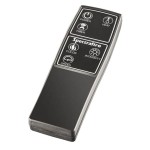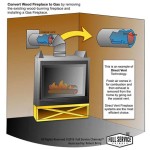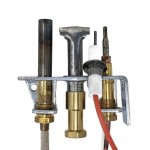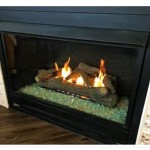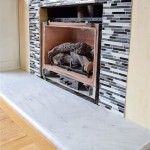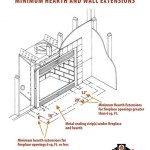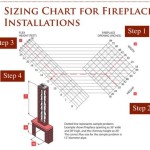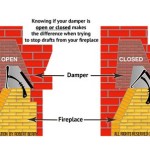Gas Log Fireplace Damper: Open or Closed?
Gas log fireplaces are a popular way to add warmth and ambiance to a home. Unlike traditional wood-burning fireplaces, gas log fireplaces require a damper, which is a metal plate or door that can be opened or closed to control airflow. The question of whether to keep the damper open or closed when using a gas log fireplace is a common one. The answer depends on several factors, including the specific design of the fireplace, the type of gas logs used, and the desired outcome.
Understanding Fireplace Dampers
The damper is a critical component of any fireplace, regardless of the fuel source. Its primary function is to regulate the flow of air into the fireplace. When the damper is open, air flows freely through the fireplace, facilitating combustion and the removal of smoke and gases. Conversely, when the damper is closed, it restricts airflow, effectively sealing the fireplace and preventing drafts.
In the context of gas log fireplaces, the damper plays a slightly different role. Gas logs produce heat through a combustion process that requires oxygen. While the damper doesn't directly control the gas flow to the logs, it does influence the air supply available for combustion. This, in turn, affects the efficiency and performance of the fireplace.
Damper Open: Advantages and Considerations
Opening the damper in a gas log fireplace can offer several advantages:
- Improved Combustion: With the damper open, more oxygen is available for the gas logs to burn, potentially leading to a more efficient combustion process and better heat output.
- Reduced Build-up of Carbon Monoxide: Adequate airflow helps to remove smoke and carbon monoxide, reducing the risk of harmful fumes accumulating in the home.
- Enhanced Ventilation: Opening the damper can provide additional ventilation to the room, improving air circulation.
However, there are also potential drawbacks to keeping the damper open:
- Increased Energy Consumption: More airflow can lead to greater heat loss through the chimney, potentially increasing your energy bill.
- Drafts: Opening the damper can create drafts, particularly if the fireplace isn't properly sealed.
Damper Closed: Advantages and Considerations
Closing the damper in a gas log fireplace might seem counterintuitive, given the need for oxygen for combustion, but it can be beneficial in certain situations:
- Reduced Heat Loss: Closing the damper can help to seal the fireplace, preventing heat from escaping through the chimney and improving energy efficiency.
- Prevention of Drafts: Closing the damper can minimize drafts, particularly in cold weather.
However, there are also some potential disadvantages to keeping the damper closed:
- Incomplete Combustion: Limited airflow can lead to incomplete combustion, resulting in lower heat output and potentially the buildup of carbon monoxide.
- Damage to the Fireplace: Closing the damper while the fireplace is in use can create a buildup of pressure, potentially damaging the fireplace components.
Key Considerations for Damper Operation
The decision of whether to keep the damper open or closed when using a gas log fireplace depends on various factors, including:
- Fireplace Design and Size: Larger fireplaces with efficient chimneys might benefit from having the damper open, while smaller fireplaces might require a closed damper to minimize heat loss.
- Type of Gas Logs: Some gas logs are designed for use with the damper open, while others require a closed damper. Consult the manufacturer's instructions for specific recommendations.
- Desired Outcome: If you prioritize maximum heat output and efficient combustion, keep the damper open. If energy efficiency and draft prevention are your main concerns, consider closing the damper.
It's essential to consult the owner's manual for your specific gas log fireplace model for clear instructions on damper operation. Additionally, consider contacting a qualified fireplace professional for tailored recommendations based on your fireplace's unique features and your individual needs.

How To Open A Chimney Damper Traditional Fireplace Pros

Vented Vs B Vent Direct Free Dixie S

Basic Home Improvements How Do You Open A Fireplace Damper

How Do You Open A Fireplace Damper

How To Open A Chimney Damper Traditional Fireplace Pros

When To Close My Fireplace Damper We Love Fire

How Do Fireplace Dampers Work Zoro Com

Fireplace Damper Repair Full Service Chimney Kansas City

What To Know About The Fireplace Damper

Should Your Fireplace Doors Be Open Or Closed While Burning
Related Posts

